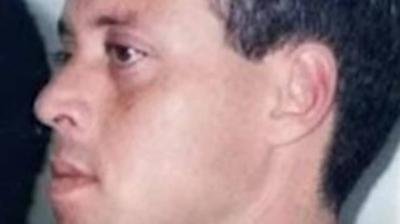Kais Saied's rise to the presidency in Tunisia was accompanied by many speculations regarding his connection to the "Brotherhood," due to the strong support he received from the Ennahda Movement in the second round of the presidential election, following a modest backing for their candidate Abdelfattah Mourou, who was eliminated in the first round. Ennahda and the group welcomed his assumption of power, especially after he presented some conservative ideas and positions during his electoral campaign.
After around two years of leading the country, Saied sent various messages to all political factions, warning the Ennahda Party and its parliamentary allies, whom he accused of attempting to undermine the state internally, embezzling public funds, and working to divide and impoverish Tunisians. He expressed dissatisfaction with the performance of Prime Minister Hicham Mechichi and criticized the parliament's members for hiding behind immunity to commit crimes and evade justice, yet did not clarify the steps he would take to restrain them.
On July 25, 2021, President Saied decided it was time to end a decade of Brotherhood rule that had regressed the country decades, as he chose to take matters into his own hands and boldly confront the group publicly, supported by unparalleled popular backing. He suspended the parliament's activities, stripped its members of immunity, and dismissed the Prime Minister, utilizing provisions from the highest laws in the country, as permitted by Article 80 of the constitution.
Saied, who rarely smiles or speaks in colloquial dialect, is seen by most Tunisians as a man of "sternness, cleanliness, and integrity" and an "example of humility." He was born on February 22, 1958, to a middle-class family with a father who was a civil servant and a mother who was a homemaker. He studied at the University of Tunisia and later graduated to teach constitutional law there before retiring in 2018.
Saied began his successful educational career at Tunisia's top universities, earning a certificate in advanced studies in public international law from the Faculty of Law and Political Science in 1985, a diploma from the International Academy of Constitutional Law in 1986, and a diploma from the International Institute of Humanitarian Law in Italy in 2001. He became one of the prominent names in the legal and constitutional field in Tunisia.
He dedicated his life to teaching, starting at the University of Law and Economic and Political Sciences in Sousse, briefly supervising the public law department from 1994 to 1999, before moving to the University of Legal and Political Sciences in the capital, where he worked until 2018. He was part of the expert team for the Arab League's General Secretariat that drafted the Arab League charter and also contributed to the preparation of the new Tunisian constitution.
After the 2011 revolution, this man became known to Tunisians through his frequent media appearances explaining and analyzing legal and constitutional issues related to political matters. They recognized a different and amusing personality in him, particularly due to his formal Arabic speech and serious, uninterrupted manner of speaking, earning him the nickname "Robocop" or "the robotic man."
His star rose in Tunisian politics when he announced his intention to run for the presidential elections as an independent candidate. Social media pages appeared under his name calling for support around his candidacy, particularly led by university students. Interest in him grew, and he successfully garnered a significant amount of support, even topping public opinion polls regarding Tunisians' voting intentions.
However, no one truly expected him to win the presidency. He was a simple, calm man living in a working-class neighborhood, without ties to any political party or backing, and lacking a strong political record to confront prominent figures in the political landscape, who were politically, financially, and media-supported candidates.
During the campaign, which he ran from a modest office in an old building in downtown Tunis, he did not appear at large popular rallies, nor were there large posters of him displayed in the streets. He simply roamed in his private car across several towns to meet citizens in cafes and local markets, having rejected state funding for presidential candidates, deeming it "public money, a right for the Tunisian people only."
Through this humble approach, he successfully united a broad base of supporters, particularly among youth and students. He managed to leapfrog over all the prominent candidates and heavyweights backed by parties, media, and businessmen, writing the end for many significant political figures who had recently held power, after gaining the trust of 72% of Tunisian voters.
Saied's political program during his campaign focused on granting a central role to local authorities and distributing power to local governance through amending the constitution. He believes that the current situation requires a political and administrative reconstruction through the establishment of local councils, which should partake in governance. He also posits that it is the people who should devise the plans and intellectual and economic strategies to drive the nation post-revolution, not the other way around.
Saied has two daughters and a son, and he is married to Judge Ichrāf Shabīl, his university colleague, who accompanied him in the final days of his electoral campaign and has recently been accompanying him on his foreign visits.




